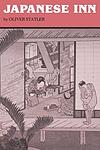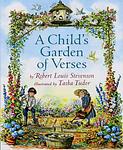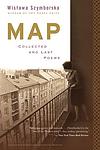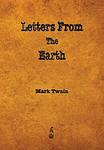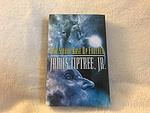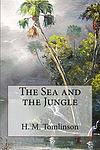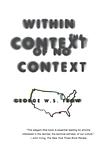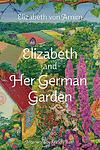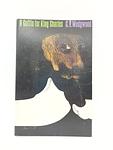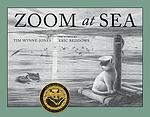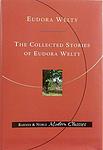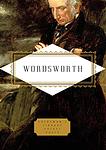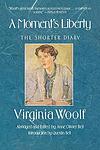1,000 Books to Read Before You Die: A Life-Changing List
This is one of the 305 lists we use to generate our main The Greatest Books list.
-
Japanese Inn by Statler, Oliver.
This book provides a captivating exploration of Japanese culture and history through the lens of a traditional inn, or ryokan, that has been operated by the same family for over a thousand years. Through detailed descriptions and engaging storytelling, the narrative delves into the inn's storied past, the generations of the family who have maintained it, and the myriad guests who have passed through its doors, from samurai to modern tourists. The work not only offers a unique lens into the evolution of Japanese hospitality and social customs but also reflects on the country's broader historical shifts and continuities. It is a richly woven tapestry that combines personal stories, historical events, and cultural insights, providing readers with a deep and nuanced understanding of Japan.
The 8734th Greatest Book of All Time -
Corinne by Staël Madame de
The novel revolves around the tragic and passionate story of a talented and independent woman who defies the social norms of her time. The protagonist, an esteemed poetess, embarks on a journey of self-discovery and love as she meets a young English nobleman during her travels in Italy. Their intense but doomed romance highlights the conflict between emotion and duty, as well as the constraints placed on women in the early 19th century. The story delves into themes of national identity, the role of the artist in society, and the struggle for a woman to maintain her autonomy and creativity within the confines of a rigidly structured world that demands her submission and sacrifice.
The 3038th Greatest Book of All Time -
A Woman, A Man, And Two Kingdoms by Francis Steegmuller
"A Woman, A Man, and Two Kingdoms" is a collection of letters and reflections that delve into the intriguing relationship between Madame de Sévigné, a celebrated French aristocrat known for her wit and vivid letter-writing, and her cousin Bussy-Rabutin, a military man and writer. The correspondence reveals the dynamics of 17th-century French society, exploring themes of love, betrayal, and social politics. Through their letters, the book provides a window into the personal lives and social contexts of the French aristocracy, showcasing the blend of personal expression and the broader cultural currents of the time.
The 9630th Greatest Book of All Time -
Tao Te Ching by Lao Tsu
This ancient text is a fundamental guide to the philosophy of Taoism, offering wisdom on how to live a balanced, virtuous life in harmony with the natural world and the Tao, the source of all existence. The book explores themes such as simplicity, humility, and non-aggression, emphasizing the importance of understanding and aligning oneself with the Tao. It provides guidance on leadership, personal growth, and spiritual enlightenment, advocating for a life of peace, contemplation, and connection with the universe.
The 615th Greatest Book of All Time -
A Child's Garden Of Verses by Robert Louis Stevenson
"A Child's Garden of Verses" is a collection of poetry that delves into the imaginative and innocent world of childhood. The poems capture the joys and adventures of youth, from sailing boats down a river, to swinging in the garden, and pondering shadows. The verses beautifully encapsulate the child's perspective, offering a nostalgic glimpse into the simple pleasures and fantasies of being young, making it a cherished read for both children and adults alike.
The 8734th Greatest Book of All Time -
Lives of the Caesars by Suetonius
"Lives of the Caesars" is a historical narrative that provides a detailed account of the personal and public lives of the first twelve Roman emperors, from Julius Caesar to Domitian. The author presents a vivid depiction of their character, behavior, appearance, and private lives, as well as their political actions, military exploits, and administrative policies. The book is a valuable source of information about the Roman Empire's early days, offering a unique perspective on the power, corruption, and extravagance of the Roman elite.
The 1327th Greatest Book of All Time -
This One Summer by Mariko Tamaki
"This One Summer" is a graphic novel that delves into the complexities of adolescence through the eyes of Rose, a young girl who spends every summer at a lakeside beach house in Awago Beach. This particular summer, Rose is caught between the innocence of childhood and the murky waters of adulthood as she navigates her evolving relationship with her friend Windy, her parents' tense relationship, and the local teenage drama. The story beautifully captures the nuances of growing up, the struggles of family dynamics, and the bittersweetness of change, all set against a backdrop of summertime nostalgia.
The 10556th Greatest Book of All Time -
Annals by Cornelius Tacitus
"Annals" is a historical work that provides a comprehensive account of the Roman Empire from the reign of Tiberius in 14 AD to the death of Nero in 68 AD. The author, a senator and historian of the Roman Empire, explores the inner workings of Roman politics, military campaigns, and social culture during this period. The book offers an in-depth look at the political machinations, power struggles, and the moral decay of the Roman elite, providing a critical perspective on the Roman emperors and their rule.
The 739th Greatest Book of All Time -
Zeno's Conscience by Italo Svevo
"Zeno's Conscience" is a novel that delves into the complex mind of Zeno Cosini, a neurotic Italian businessman, through his confessional memoirs, which he writes at the behest of his psychiatrist. The narrative humorously and poignantly explores Zeno's struggles with his father's death, his unfulfilled love affairs, his troubled marriage, and his addiction to cigarettes. The book, rich in irony and psychological depth, offers a sharp critique of early 20th-century bourgeois society, revealing the protagonist's introspective and often flawed interpretations of his own life and the world around him.
The 8734th Greatest Book of All Time -
Histories by Cornelius Tacitus
"Histories" is a comprehensive account of the Roman Empire from 69-96 AD, a period marked by significant political turmoil. It provides an in-depth look at the reigns of four emperors: Galba, Otho, Vitellius, and Vespasian, along with the social and political upheavals of the time. The narrative also covers the Jewish rebellion and the burning of the Jerusalem Temple, offering a rich historical context of the period. Despite some gaps in the record, it remains a crucial primary source for understanding this era of Roman history.
The 1814th Greatest Book of All Time -
Alice James by Jean Strouse
This biography explores the life of Alice James, the sister of the renowned James brothers, William and Henry. Despite her own intellectual prowess, Alice struggled with the constraints imposed on women of her era and battled chronic illness throughout her life. The book delves into her personal diaries, revealing her sharp insights and the emotional and psychological challenges she faced. It portrays her not just as a passive observer of her more famous family members, but as a perceptive and articulate thinker in her own right, whose contributions to the intellectual landscape of her time have often been overlooked.
The 9178th Greatest Book of All Time -
Map by Wislawa Szymborska
"Map" is a thought-provoking collection of poetry that delves into the complexities of human experience, encompassing themes of history, individuality, and the mundane aspects of everyday life. The poet employs a unique blend of wit, irony, and philosophical insight to explore the vast landscapes of human emotion and the intricacies of our existence. Through her poems, she questions the familiar, challenges the established norms, and offers fresh perspectives on the world, encouraging readers to see beyond the surface and appreciate the depth of our surroundings and interactions.
The 10596th Greatest Book of All Time -
Fame And Obscurity by Gay Talese
"Fame and Obscurity" is a compelling collection of profiles and essays that delve into the lives of both renowned and ordinary individuals, exploring the nuances of public recognition and anonymity. The author masterfully captures the essence of his subjects, ranging from famous figures like Frank Sinatra to the lesser-known denizens of New York City, such as the workers on the Brooklyn Bridge and the inhabitants of the city's bustling streets. Through a series of vivid portraits, the book offers a profound commentary on the nature of fame, success, and the human condition, highlighting the contrasts and intersections between visibility and obscurity in American society.
The 8734th Greatest Book of All Time -
The Surprise Of Cremona by Edith Templeton
"The Surprise of Cremona" is a travel memoir that offers an engaging and vividly detailed account of the author's journey through Northern Italy, focusing particularly on the city of Cremona. Known for its rich history in violin making, the narrative delves into the city's artistic and architectural treasures, exploring its churches, museums, and local customs. The author's sharp observations and witty prose provide a personal and insightful exploration of Italian culture, making it an enjoyable read for those interested in travel and the nuanced beauties of Italy.
The 8734th Greatest Book of All Time -
The History of the Peloponnesian War by Thucydides
This book is a historical account of the Peloponnesian War between the city-states of Athens and Sparta in ancient Greece. The author, an Athenian general, provides a detailed narrative of the war, its causes, and its consequences, offering valuable insights into the political and social dynamics of the time. The work is considered a pioneering piece in the field of history due to its rigorous methodology and critical analysis of events.
The 568th Greatest Book of All Time -
The Guns of August by Barbara Wertheim Tuchman
"The Guns of August" is a detailed and engaging account of the first month of World War I. The book explores the events leading up to the war, the political and military strategies of the various countries involved, and the critical decisions that shaped the course of the conflict. It presents a vivid picture of the war's early stages, highlighting the miscalculations, miscommunications, and misunderstandings that led to one of the most devastating wars in history.
The 919th Greatest Book of All Time -
Lost Boy Lost Girl by Peter Straub
In "Lost Boy Lost Girl," a haunting narrative unfolds around the mysterious disappearance of a teenage boy shortly after his mother, a troubled novelist, commits suicide. The boy's uncle, a writer, delves into the dark and unsettling history of the family's home, uncovering secrets that blur the lines between fiction and reality. As he investigates, he encounters stories of a malevolent presence and a hidden room that may hold the key to the family's terrifying and tragic past. The novel explores themes of loss, the impact of trauma, and the possibility of the supernatural.
The 10234th Greatest Book of All Time -
Democracy in America by Alexis de Tocqueville
This influential book offers an in-depth analysis of the strengths and weaknesses of 19th century American democracy. The author, a French political thinker, provides a detailed examination of the democratic process and its impact on society, politics, and the economy. The work highlights the importance of civil society, local institutions, and the spirit of equality in ensuring the stability of democracy. It also delves into the dangers of majority tyranny, the potential for democratic despotism, and the critical role of religion and morality in sustaining a democratic nation.
The 241st Greatest Book of All Time -
Letters From The Earth by Mark Twain
"Letters from the Earth" is a posthumously published work that consists of a series of essays written from the perspective of Satan, who, banished to Earth, writes letters to his fellow archangels about the curious practices, beliefs, and idiosyncrasies of humans. Through these satirical letters, the book explores the contradictions in human society and Christian doctrine with sharp wit and biting humor. The work delves into themes of morality, religion, and the human condition, offering a critical and often cynical view of the constructs that govern human life.
The 8734th Greatest Book of All Time -
The Lives of a Cell by Lewis Thomas
This book is a collection of 29 essays that explore the world of science and biology, providing insights into the interconnectedness of life on Earth. The author uses metaphors and analogies to explain complex scientific concepts, such as the similarities between Earth and a single cell. The essays cover a wide range of topics, including the behavior of bacteria, the possibility of life on other planets, and the role of language in human evolution. The book emphasizes the importance of understanding and respecting the complexity and beauty of life.
The 1835th Greatest Book of All Time -
Lark Rise To Candleford by Flora Thompson
This book is a semi-autobiographical trilogy that paints a vivid portrait of rural English life at the end of the 19th century. Through the eyes of a young girl growing up in the hamlet of Lark Rise and later moving to the more prosperous neighboring village of Candleford, the narrative delicately explores the social dynamics, traditions, and changes in the countryside of that era. Rich in detail, the story captures the essence of community, the hardships of peasant life, and the inevitable transformation brought about by progress and education, offering a nostalgic look at a bygone way of life.
The 2900th Greatest Book of All Time -
Religion And The Decline Of Magic by Keith Thomas
This scholarly work provides a comprehensive examination of the interplay between magic, religion, and science in sixteenth and seventeenth-century England. It explores how the Protestant Reformation and the rise of scientific thinking led to a decline in the practice of magic. The book delves into the ways people sought to understand and control their world before the widespread acceptance of the scientific method, analyzing why individuals turned to magic and how the Church and state responded. It also considers the transition from a society where magical beliefs were mainstream to one where they were increasingly marginalized and ridiculed, offering a detailed account of this significant cultural shift.
The 1808th Greatest Book of All Time -
Her Smoke Rose Up Forever by James Tiptree Jr.
"Her Smoke Rose Up Forever" is a collection of science fiction stories that explore complex themes such as gender and identity through a speculative lens. The anthology brings together some of the most powerful and thought-provoking short stories written by a pioneering author in the genre, known for their ability to weave deep psychological insights with futuristic settings and technologies. The narratives often challenge societal norms and human nature, offering a unique and often unsettling perspective on the potential directions of human evolution and the ethical dilemmas that might arise.
The 9599th Greatest Book of All Time -
Arabian Sands by Wilfred Thesiger
This book is a detailed account of the author's travels across the Arabian Peninsula during the 1940s. The narrative provides an in-depth look into the Bedouin way of life, their customs, and the harsh desert environment they inhabit. The author's journey takes him through the Empty Quarter, one of the most inhospitable places on earth, challenging his endurance and resilience. The book is a testament to the author's love for adventure and his admiration for the Bedouin people, offering readers a glimpse into a world that has largely disappeared.
The 2685th Greatest Book of All Time -
The Great Good Thing by Roderick Townley
"The Great Good Thing" is a fantasy novel that follows the story of Princess Sylvie, a character in a book who becomes self-aware and realizes that she and her fellow characters exist only within the confines of their storybook. As Sylvie becomes conscious of the world beyond the pages, she leads her fellow characters in an adventurous quest to ensure their survival. They must think creatively and act courageously as they interact with the Reader and navigate the challenges of their existence, ultimately seeking a permanent escape from the threat of oblivion that comes with being forgotten.
The 10098th Greatest Book of All Time -
William Trevor: The Collected Stories by William Trevor
This collection brings together numerous short stories from a renowned author, demonstrating his masterful storytelling ability. The stories span a variety of themes and settings, often focusing on the complexities of human relationships and the subtle nuances of everyday life. The author's keen eye for detail and ability to capture the human condition in his works have earned him a place among the greatest short story writers.
The 1286th Greatest Book of All Time -
Prisoner Without A Name, Cell Without A Number by Jacobo Timerman
The book is a harrowing memoir of a journalist who was detained and tortured by the Argentine military government during the late 1970s. It vividly recounts his experiences of imprisonment, the brutal interrogation techniques he endured, and his observations on the political and social turmoil of Argentina under a repressive regime. The narrative not only exposes the personal anguish and struggle of the author but also serves as a critical examination of the impact of totalitarianism on society and the perilous state of human rights under such governance.
The 5334th Greatest Book of All Time -
The Sea And The Jungle by H. M. Tomlinson
"The Sea and The Jungle" is a travelogue that recounts the author's experiences aboard a steamship traveling from England to South America and then along the Amazon and Madeira Rivers. The narrative vividly captures the harsh realities and stunning beauty of the natural world, as well as the challenges and peculiarities of life at sea and in the jungle. Through evocative prose, the author explores both the physical journey and the philosophical reflections it provokes, offering insights into human nature and the impact of civilization on the wilderness.
The 8734th Greatest Book of All Time -
Hermit Of Peking by Hugh Trevor-Roper
"Hermit of Peking" is a captivating biography that explores the enigmatic life of Sir Edmund Backhouse, a British sinologist and orientalist who lived in Beijing during the late 19th and early 20th centuries. The book delves into Backhouse's controversial career, including his role as a scholar, his fraudulent historical documents, and his eccentric personal life. Drawing from a wealth of sources, the author critically examines Backhouse's contributions to Western perceptions of China, revealing a complex figure whose legacy is a blend of genuine scholarship and elaborate deceit.
The 9006th Greatest Book of All Time -
On Growth and Form by D'Arcy Wentworth Thompson
"On Growth and Form" is a landmark work that explores the science of biology from a mathematical perspective, emphasizing the patterns and geometry found in living organisms. The book discusses how physical and mathematical laws influence the way that organisms grow and develop, and how different species exhibit similar patterns of growth. It also touches on how these principles apply to the structure of the universe and the patterns found in nature. This work is considered a foundational text in the field of mathematical biology.
The 1768th Greatest Book of All Time -
Within The Context Of No Context by George W. S. Trow
"Within the Context of No Context" is a critical examination of the impact of television and mass media on American culture and individual identity. The book presents a poignant analysis of how media reshapes human experiences and societal norms, creating a "context of no context" where traditional frameworks for understanding the world are eroded. The author argues that the overwhelming presence of media leads to a superficiality that disconnects people from authentic human interactions and historical continuity, ultimately altering perceptions of reality and diminishing the depth of personal and collective narratives.
The 9178th Greatest Book of All Time -
Centuries, Poems, And Thanksgivings by Thomas Traherne
"Centuries, Poems, and Thanksgivings" is a collection of meditative and spiritual writings that delve into the nature of happiness, the beauty of the world, and the divine love that permeates existence. The work reflects the author's profound sense of wonder and gratitude for creation, as well as his belief in the innate innocence and goodness of humanity. Through a series of contemplative poems and prose, the text invites readers to rediscover the world through the eyes of childlike joy and to appreciate the boundless treasures that life offers to those who embrace it with an open heart.
The 5289th Greatest Book of All Time -
Life In Code by Ellen Ullman
"Life in Code" is a collection of essays that delve into the author's experiences as a software engineer during the rise of the digital age from the 1990s to the present. The book offers a personal and reflective look at how the tech industry has evolved, highlighting the challenges and transformations brought about by the internet and digital technologies. Through her narrative, the author explores broader societal issues such as gender dynamics in tech, the impact of automation on employment, and the ethical considerations of software development, providing a unique insider's perspective on the intersection of technology, culture, and identity.
The 10625th Greatest Book of All Time -
Holy Land by D. J. Waldie
The book is a reflective memoir that explores the transformation of a small town in California into a planned suburb, examining the intersection of personal history with the broader American landscape. Through a series of short, vividly descriptive chapters, the author delves into the mundane yet profound experiences of life in a grid of uniform homes, offering insights into community, identity, and the sacredness found in ordinary spaces. The narrative is interwoven with thoughtful meditations on faith, geography, and the architecture of living spaces, revealing how the physical environment shapes personal and collective experiences.
The 9829th Greatest Book of All Time -
Celestine by Gillian Tindall
"Celestine" is a historical novel that delves into the life of a young French woman in the 19th century, exploring themes of love, societal expectations, and personal freedom. The narrative follows Celestine from her rural upbringing through her journey to Paris, where she seeks to establish her independence amidst the tumultuous backdrop of the Franco-Prussian War. Through meticulous research and evocative prose, the book paints a vivid portrait of the era and examines the constraints imposed on women during that time, highlighting Celestine's struggle for self-determination against the rigid social structures of the day.
The 9782nd Greatest Book of All Time -
Garibaldi And The Thousand, May 1860 by George Macaulay Trevelyan
The book provides a historical account of Giuseppe Garibaldi's daring expedition with his legendary "Thousand" volunteers in May 1860, which played a crucial role in the unification of Italy. It details their departure from Quarto, their landing in Sicily, and the subsequent military and political maneuvers that led to the significant conquest of Naples. Through vivid narrative and meticulous research, the author captures the essence of this pivotal moment in Italian history, highlighting Garibaldi's leadership, strategy, and the fervent nationalist spirit that drove his small force to achieve monumental success against larger, more equipped armies.
The 8734th Greatest Book of All Time -
How To Tell When You're Tired by Reg Theriault
"How to Tell When You're Tired" is a reflective exploration of the physical and psychological impacts of manual labor on workers. Drawing from the author's extensive personal experience in the field, the book delves into the often overlooked aspects of blue-collar work, such as the toll it takes on one's body and mind, and the culture and camaraderie among workers. It provides a candid look at the hardships faced by laborers, offering insights into how they manage the relentless demands of their jobs, the signs of fatigue they learn to recognize, and the coping mechanisms they develop. This work serves as both a tribute to the resilience of manual workers and a critical commentary on the need for greater understanding and respect for their contributions to society.
The 9782nd Greatest Book of All Time -
Small Talk At Wreyland by Cecil Torr
"Small Talk at Wreyland" is a collection of essays that provide a detailed and charming account of life in Wreyland, a small hamlet in Devon, England. The author compiles notes, anecdotes, and family documents to paint a vivid picture of rural English life in the late 19th and early 20th centuries. The book captures the customs, conversations, and characters of the area, offering insights into the social history and traditions of the time, and preserving the memory of a way of life that has since changed dramatically.
The 8734th Greatest Book of All Time -
The Aeneid by Virgil
This epic poem tells the story of Aeneas, a Trojan who travels to Italy, where he becomes the ancestor of the Romans. It includes a series of prophecies about Rome's future and the deeds of heroic individuals, and is divided into two sections, the first illustrating the hero's journey and the second detailing the wars and battles that ensue as Aeneas attempts to establish a new home in Italy. The narrative is deeply imbued with themes of duty, fate, and divine intervention.
The 75th Greatest Book of All Time -
Up from Slavery by Booker T. Washington
The book is an autobiographical account of a former slave who rises to become a prominent educator and speaker. It chronicles his journey from enslavement during his childhood, through his struggles for education and his founding of Tuskegee Institute in Alabama. The narrative emphasizes the importance of education, hard work, and self-reliance as the keys to African American advancement, and provides a firsthand perspective on post-Civil War American South.
The 1216th Greatest Book of All Time -
Girl in Hyacinth Blue by Susan Vreeland
The novel explores the history of a fictional painting by Vermeer, as it passes through the hands of various owners. The narrative traces back from the present day to the time of the painting's creation, revealing the profound impact it has had on those who possessed it. The painting's subjects, a young girl in a blue dress, also becomes a symbol of beauty, loss, and the enduring power of art. The novel is a series of interconnected stories that together form a rich tapestry of human experience and the power of art to transform lives.
The 3725th Greatest Book of All Time -
The Double Helix by James D. Watson
This book is a personal account of the race to discover the structure of DNA, told from the perspective of one of the co-discoverers. It provides an insider's view of scientific research, the collaboration and competition, the dedication, the doubt, the exhilaration of discovery, and the often fraught relationship between science and the rest of life. The book also explores the personalities, quirks, and conflicts of the scientists involved in the groundbreaking discovery.
The 170th Greatest Book of All Time -
Among Others by Jo Walton
The novel is a captivating blend of fantasy and coming-of-age story, told through the diary entries of a fifteen-year-old girl who has survived a tragic accident that took her twin sister's life and left her with a crippling injury. She navigates the complexities of adolescence, boarding school life, and family drama while also dealing with the magical abilities she inherited from her mother. As she seeks solace in the pages of science fiction and fantasy novels, she grapples with her own magical powers and the ethereal creatures that only she can see, leading to a poignant exploration of grief, growth, and the transformative power of storytelling.
The 6686th Greatest Book of All Time -
The Dying Earth by Jack Vance
Set in a far distant future where the sun is nearing the end of its life, this book features a collection of short stories that revolve around an array of characters, including magicians, rogues, and innocent bystanders. The stories are interlinked and set in a world where magic and technology coexist, and where the line between the two is often blurred. The tales are filled with complex characters, intricate plots, and a richly detailed world, all presented with a unique blend of dark humor and philosophical depth.
The 1859th Greatest Book of All Time -
The Letters Of Vincent Van Gogh by Vincent van Gogh
"The Letters of Vincent van Gogh" is a compilation of correspondence that provides a deep and personal insight into the mind of one of the world's most famous and influential painters. Through these letters, primarily written to his brother Theo, the reader gains an intimate understanding of Van Gogh's thoughts on art, his emotional struggles, his aspirations, and the profound relationships he maintained throughout his turbulent life. The collection not only sheds light on his creative process but also reveals his reflections on existence, his financial difficulties, and his relentless pursuit of his artistic vision, offering a poignant look at his world from his own perspective.
The 3673rd Greatest Book of All Time -
The Compleat Angler by Izaak Walton
This classic piece of literature is a detailed guide to the art and philosophy of fishing, blending practical advice on angling with musings on the beauty of nature and the rhythm of the water. Written in a dialogue format, it presents an in-depth exploration of the techniques for catching and enjoying various freshwater fish, alongside poetic discourses on the joys of the pastoral life. The book serves as both a timeless manual for the fishing enthusiast and a reflective ode to the serene pleasures of the natural world, celebrating the simple harmony found in the pastoral lifestyle and the meditative sport of fishing.
The 1505th Greatest Book of All Time -
Elizabeth And Her German Garden by Elizabeth von Arnim
"Elizabeth and Her German Garden" is a delightful novel that follows the experiences of Elizabeth, a woman who finds solace and joy in cultivating her garden in the rural countryside of Germany. Through her interactions with the garden and the various visitors to her home, Elizabeth reflects on the constraints of society, the roles of women, and the pleasures of solitude and nature. The book, written as a series of diary entries, combines witty observations with lyrical descriptions of the garden and seasons, revealing the protagonist's growth and inner life as she creates a space of her own away from the demands of her family and societal expectations.
The 8734th Greatest Book of All Time -
Lives of the Artists by Giorgio Vasari
"Lives of the Artists" is a comprehensive collection of biographies of the most significant Italian artists from the 13th to the 16th centuries. The book provides a detailed overview of the artists' lives, their works, and their contributions to the art world. It includes the biographies of renowned artists like Leonardo da Vinci, Michelangelo, and Raphael, among others. The author's personal acquaintance with some of these artists lends a unique perspective, making the book a valuable historical document.
The 1003rd Greatest Book of All Time -
France And England In North America by Francis Parkman
This historical work offers a comprehensive examination of the complex and often turbulent relationship between France and England as they vied for dominance in North America from the sixteenth through the eighteenth centuries. The narrative delves into the exploration, colonization, and eventual conflicts that arose between the two European powers, highlighting the roles of key figures and the impact of their struggles on the indigenous populations. The series of volumes meticulously details the political maneuvers, military engagements, and cultural clashes that ultimately shaped the continent's colonial landscape and set the stage for the future of the United States and Canada.
The 5289th Greatest Book of All Time -
The Element Of Lavishness by William Maxwell
"The Element of Lavishness" is a collection of letters exchanged between two prominent 20th-century writers over a span of four decades. The correspondence reveals the deep friendship and mutual respect that flourished between the pair as they discussed their personal lives, shared their writing processes, and offered insights and critiques on each other's works. The letters not only highlight the evolution of their literary styles but also reflect the broader cultural and social changes occurring during their time, providing readers with a rich historical context and a rare glimpse into the intimate dynamics of a literary friendship.
The 10071st Greatest Book of All Time -
The Trial Of Charles I by C. V. Wedgwood
"The Trial of Charles I" explores the dramatic and unprecedented trial of King Charles I of England, who was charged with high treason against his own subjects. The book delves into the political and military conflicts that led to the trial, providing a detailed account of the legal proceedings and the king's defense. It also examines the broader implications of the trial for the concept of monarchy and the rule of law, highlighting the intense debates and ideological divisions of the time. The narrative captures the tension and gravity of the moment when a king was held accountable by his people, culminating in his execution and the temporary abolition of the monarchy.
The 8734th Greatest Book of All Time -
The Maples Stories by John Updike
"The Maples Stories" is a collection of short stories that intricately explores the complexities of marriage and relationships through the lives of Richard and Joan Maple. Over the course of several decades, the stories trace the nuances of their marriage, from the blossoming of their youthful love to the disintegration of their bond and eventual divorce. The narrative captures the shifting dynamics and emotional landscapes of the couple as they navigate the trials of raising children, infidelity, and the search for individual identity within the confines of a long-term, evolving relationship.
The 10437th Greatest Book of All Time -
Kaddish by Leon Wieseltier
"Kaddish" is a profound exploration of grief, tradition, and spirituality, centered around the author's year-long journey of reciting the Kaddish, the Jewish prayer for the dead, following the passing of his father. The book delves deeply into the origins, history, and meaning of the prayer, while also reflecting on the broader themes of faith, identity, and the challenges of adhering to religious practice in the modern world. Through this personal and philosophical narrative, the author seeks understanding and solace in the ancient rituals of his faith, confronting his own sorrow and the complexities of the human condition.
The 9983rd Greatest Book of All Time -
Simone Weil: An Anthology by Simone Weil
This anthology is a comprehensive collection of writings by the French philosopher and political activist Simone Weil. It encompasses a wide range of her thoughts, covering topics from philosophy and spirituality to politics and ethics. The selections in the anthology highlight Weil's profound insights into the human condition, her exploration of the nature of truth and justice, and her deep commitment to empathy and compassion. Her reflections on oppression, liberty, and the need for social justice are particularly poignant, offering readers a rich perspective on the struggles and aspirations of the 20th century.
The 9445th Greatest Book of All Time -
Boggs by Lawrence Weschler
"Boggs" is a compelling exploration of the life and work of an artist who challenges the concept of money by creating hand-drawn, detailed replicas of currency. The artist's meticulous works are not mere counterfeits, but rather pieces of art that question the value and meaning of money. The narrative delves into the artist's interactions with the legal system and the art world, examining the philosophical and legal implications of his work. Through these interactions, the book raises profound questions about art, value, and the legal structures governing currency and counterfeiting.
The 10012th Greatest Book of All Time -
Zoom At Sea by Tim Wynne-Jones
"Zoom at Sea" is a charming children's book that follows the adventures of a curious cat named Zoom who loves water and dreams of going to sea. Unlike most cats, Zoom is fascinated by water and yearns to experience the ocean. One day, he visits the home of his seafaring uncle, Captain Roy, where he discovers a magical house filled with rooms that transport him to different nautical worlds. Through these enchanting portals, Zoom embarks on exciting sea adventures, fulfilling his dreams of sailing the high seas and exploring watery realms.
The 9289th Greatest Book of All Time -
The Collected Stories of Eudora Welty by Eudora Welty
This collection of short stories provides an insightful look into the human condition through the lens of Southern American life. The narratives, rich in detail and character development, explore a wide range of themes such as love, loss, race, poverty, and the complexities of human relationships. The stories are deeply rooted in the setting of the Southern United States, bringing to life the unique culture, customs, and dialect of the region. The author's masterful storytelling and evocative prose make each story a vivid and memorable exploration of human nature.
The 720th Greatest Book of All Time -
The Making of the President, 1960 by Theodore White
The book provides a detailed account of the 1960 presidential election between John F. Kennedy and Richard Nixon. It delves into the strategies, tactics, and machinations of both the Democratic and Republican campaigns, offering a behind-the-scenes look at American politics. The author's thorough research and insightful analysis have made this book a classic in political journalism.
The 3281st Greatest Book of All Time -
The Hot Rock by Donald E. Westlake
"The Hot Rock" is a thrilling heist novel that follows the misadventures of a group of criminals as they attempt to steal a valuable gem known as the Balabomo Emerald. Led by the clever and resourceful Dortmunder, the team encounters numerous obstacles and setbacks, including double-crossing partners, a persistent detective, and a series of comical mishaps. With a blend of humor, suspense, and unexpected twists, the book takes readers on a wild ride through the world of high-stakes theft and the eccentric characters that inhabit it.
The 1787th Greatest Book of All Time -
Dearest Friend by Lynne Withey
"Dearest Friend" is a comprehensive biography that delves into the life of Abigail Adams, one of America's most influential early figures. The book provides an intimate portrayal of her role as a wife, mother, and confidante to John Adams, the nation's second president, highlighting her enduring contributions to the American Revolution and the founding of the United States. Through her extensive correspondence, particularly her letters to her husband, the biography reveals Abigail's profound intellect, political savvy, and pioneering advocacy for women's rights, offering a detailed look at her personal struggles and triumphs as well as her significant impact on American history.
The 9199th Greatest Book of All Time -
New And Collected Poems by Richard Wilbur
This anthology is a comprehensive collection of lyrical works by a distinguished American poet, showcasing a career-spanning selection of verse that includes both new compositions and previously published favorites. The poems within reflect a masterful use of form and a deep engagement with the complexities of human experience, nature, and art. The poet's keen observations, intellectual rigor, and musical language invite readers to explore themes of beauty, morality, and the transient nature of life. The collection stands as a testament to the poet's enduring voice and significant contribution to the canon of American poetry.
The 6305th Greatest Book of All Time -
The Invention Of Nature: Alexander Von Humboldt’s New World by Andrea Wulf
"The Invention of Nature" is a biographical account of Alexander von Humboldt, a 19th-century explorer, scientist, and naturalist who revolutionized the way we understand the natural world. Andrea Wulf chronicles Humboldt's travels across South America, his encounters with indigenous peoples, and his groundbreaking scientific discoveries that challenged prevailing notions of the natural world. Humboldt's ideas about interconnectedness and the unity of nature were ahead of their time and continue to influence environmentalism and conservation today. Wulf's book is a masterful exploration of one of history's most fascinating and influential figures.
The 7084th Greatest Book of All Time -
Lincoln at Gettysburg by Garry Wills
This book provides an analysis of the Gettysburg Address, delivered by President Abraham Lincoln, in the context of its historical and cultural significance. The author dissects the speech, its influences, and its enduring impact on American society and ideals. The book also delves into the circumstances surrounding the address, the political climate of the time, and the role it played in shaping the nation's understanding of the Civil War and the principles of democracy.
The 5435th Greatest Book of All Time -
April 1865 by Jay Winik
"April 1865: The Month That Saved America" is a historical narrative that delves into the pivotal final month of the American Civil War, emphasizing how critical decisions and events in April 1865 helped to prevent the nation from fracturing permanently. The book explores key moments such as Robert E. Lee's surrender at Appomattox, Abraham Lincoln's assassination, and the lesser-known events that followed, which collectively helped to heal and reunite the country. Through detailed accounts and engaging storytelling, the author illustrates how the actions of a few individuals in the face of national crisis shaped the future of the United States, highlighting the delicate balance between war and peace, and the resilience of the American spirit.
The 10098th Greatest Book of All Time -
Black Lamb and Grey Falcon by Rebecca West
"Black Lamb and Grey Falcon" is a comprehensive and detailed travelogue of Yugoslavia, penned by a British author during the brink of World War II. The book beautifully interweaves history, politics, culture, and personal experiences to paint a vivid picture of the Balkan region. It also serves as a profound reflection on the impending war and the author's concerns about the rise of fascism in Europe, making it not just a travel book but also an essential historical document.
The 376th Greatest Book of All Time -
The Prelude by William Wordsworth
"The Prelude" is an autobiographical, epic poem that explores the author's spiritual growth and development. The narrative takes the reader through the poet's childhood and youth, his experiences in the French Revolution, and his subsequent disillusionment. It also delves into his relationship with nature, which he sees as a powerful, spiritual force that has shaped his life and consciousness. The poem is a reflection on the poet's personal journey towards understanding his own mind and the world around him.
The 781st Greatest Book of All Time -
A Moment's Liberty by Virginia Woolf
"A Moment's Liberty" is a collection of essays that delve into the personal reflections, literary criticisms, and social observations of its author. The essays explore a range of topics from the intricacies of human relationships and the role of women in society to the nature of writing and the author's own experiences with literature and reading. The collection showcases the author's sharp intellect, lyrical prose, and the ability to weave complex ideas with emotional depth, offering readers a rich tapestry of thought that challenges and enlightens.
The 9599th Greatest Book of All Time -
A Part Of Myself by Carl Zuckmayer
"A Part of Myself" is a captivating autobiography that delves into the life and experiences of its author, a renowned playwright. The narrative provides a vivid account of his early years, his growth as an artist, and the tumultuous historical events that shaped his world and works. Through personal anecdotes and reflective insights, the book offers a unique glimpse into the cultural and social milieu of Europe during the early to mid-20th century, highlighting the author's struggles, inspirations, and the enduring human spirit amidst adversity.
The 8734th Greatest Book of All Time -
Swallowing Clouds by Anthony Zee
"Swallowing Clouds" is a unique fusion of culinary guide and linguistic journey that explores the poetic and flavorful world of Chinese cuisine. The book delves into the etymology and symbolism of Chinese characters used in food and menus, offering readers not only a deeper understanding of Chinese culture and language but also practical knowledge for ordering and appreciating Chinese food. Through an engaging exploration of restaurant menus and dishes, the author provides insights into the history, culture, and intricate flavors that define Chinese gastronomy, making it an enlightening read for food enthusiasts and language lovers alike.
The 9599th Greatest Book of All Time -
Israel And The Dead Sea Scrolls by Edmund Wilson
This book provides an insightful exploration into the discovery and significance of the Dead Sea Scrolls, ancient texts uncovered near the shores of the Dead Sea, which have profound implications for our understanding of Jewish history and the development of early Christianity. The author delves into the archaeological context of the scrolls, the content and interpretation of the texts themselves, and the broader historical implications, particularly how these findings relate to the state of Israel and its historical narrative. The work also discusses the academic and political controversies surrounding the scrolls' accessibility and interpretation, offering a comprehensive overview of one of the 20th century's most important archaeological finds.
The 8734th Greatest Book of All Time
1,000 Books to Read Before You Die(Book), 970 Books
A list written by James Mustich, a bookseller, editor, and writer. Here's the publisher's description:
Celebrate the pleasure of reading and the thrill of discovering new titles in an extraordinary book that’s as compulsively readable, entertaining, surprising, and enlightening as the 1,000-plus titles it recommends.
Covering fiction, poetry, science and science fiction, memoir, travel writing, biography, children’s books, history, and more, 1,000 Books to Read Before You Die ranges across cultures and through time to offer an eclectic collection of works that each deserve to come with the recommendation, You have to read this. But it’s not a proscriptive list of the “great works”—rather, it’s a celebration of the glorious mosaic that is our literary heritage.
Added about 1 month ago.
This list has a weight of 22%. To learn more about what this means please visit the Rankings page.
Here is a list of what is decreasing the importance of this list:
- Voters: 1 person voted
- List: only covers mostly "Western Canon" books
- List: criteria is not just "best/favorite"
- List: contains over 500 books(Quantity over Quality)
If you think this is incorrect please e-mail us at [email protected].
